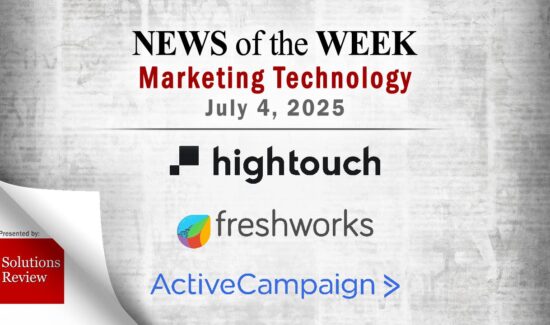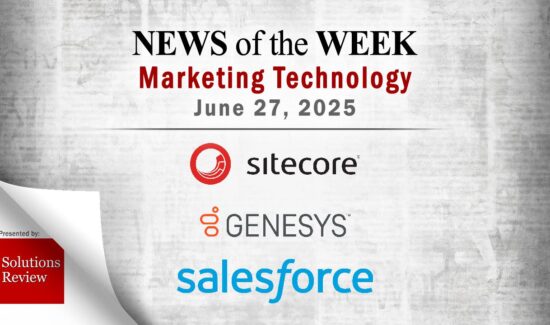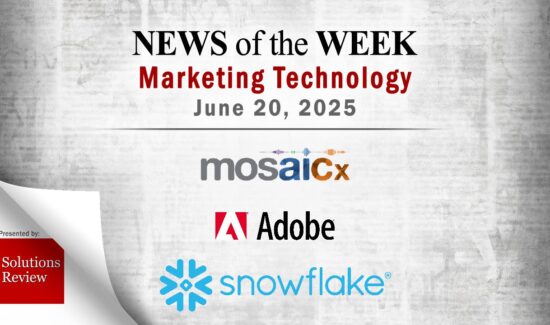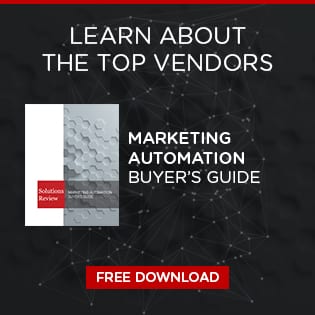What’s Changed: 2024 Gartner Magic Quadrant for B2B Marketing Automation Platforms


The editors at Solutions Review highlight and summarize the key takeaways and updates in Gartner’s 2024 iteration of their Magic Quadrant for B2B Marketing Automation Platforms.
Analyst house Gartner, Inc. recently released the 2024 version of its Magic Quadrant for B2B Marketing Automation Platforms. Gartner defines B2B marketing automation platforms (B2B MAPs) as software that support a company’s demand generation processes at scale. These platforms aim to help marketers “capture and qualify leads and accounts, orchestrate marketing-driven engagement across the full customer journey, and use analytics to optimize and measure performance.”
Most of these platforms have a collection of “must-have” capabilities. According to Gartner’s report, these include the ability to synchronize data into unified customer profiles, create multistep journeys for contacts, manage coordinated customer engagement programs across multiple channels, score leads to evaluate quality, measure the performance of marketing touchpoints, and communicate results using data visualization/dashboarding capabilities.
What’s Changed: 2024 Gartner Magic Quadrant for B2B Marketing Automation Platforms
In this updated Magic Quadrant, Gartner identifies twelve of the most significant B2B Marketing Automation Platforms in the marketplace. The researchers behind the report—Rick LaFond, Jeff Cohen, Alan Antin, Upasna Chandna, and Nicholas Mortensen—evaluated the strengths and weaknesses of each provider listed and ranked them on the signature “Magic Quadrant” graph, which provides readers with an illustration of each vendor’s ability to execute their vision. The diagram includes four quadrants: leaders, challengers, visionaries, and niche players. However, there are no Visionaries in this iteration of the report.
Leaders
HubSpot starts the report with its Marketing Hub solution, which allows users to manage their marketing campaigns and data from its integrated CRM platform. HubSpot has expanded the AI functionalities across its platform, having introduced a content assistant for generating content, a blog post generator, and a chat assistant that combines ChatGPT with HubSpot CRM data. Its other differentiating features include an agile product development model and the ability to create and publish content across channels.
Salesforce is the next Leader in the report. Its Marketing Cloud Account Engagement solution is designed to help businesses in the high-tech, manufacturing, healthcare, and financial services markets generate and capture prospect and account engagement and connect it to sales and service platforms. Salesforce’s strengths as a B2B MAP provider include its journey testing/simulation features, support for complex B2B marketing needs, lead workflow design, overall market responsiveness, and AI-based approach to campaign designs and intelligence.
Adobe retains its Leader Status with the Adobe Marketo Engage product, which focuses on helping B2B marketing teams across the technology, professional services, and financial services industries orchestrate complex customer journeys. Marketo Engage’s capabilities, pricing, and packaging are all designed to support customers of all sizes, from small businesses to large enterprises. Its strength as a B2B MAP vendor includes an extensible data model that enables users to bring various data sources into the product, its grasp of the needs of B2B marketing teams, and its collection of native CRM and SFA integrations.
Microsoft earns its place in the category with Dynamics 365 Customer Insights, a solution from the company’s combination of its B2B MAP product (Dynamics 365 Marketing) and customer data platform (CDP) product. The Dynamics 365 Customer Insights solution offers companies advanced generative AI capabilities for end-to-end cross-channel campaign execution. Another notable feature of the solution is its global offerings, including support for 42 languages, a network of 7,000 resellers worldwide, and a direct sales and support presence in the Americas, EMEA, and Asia/Pacific.
Creatio uses a no-code, modular approach to automation for its customer journey design and lead revenue cycle management processes. Its Marketing Creatio solution suite is reinforced by the recently released Creatio Copilot, which uses natural language prompts to help users execute activities like content generation and contact record analysis. Its other defining characteristics include its flat pricing structure, lead workflows, AI-embedded intelligence, and composable, no-code platform that allows clients to assemble product components, apps, and custom UIs.
Oracle rounds out the Leaders with the Eloqua Marketing Automation suite, which broadly focuses on equipping B2B marketers with tools for orchestrating multichannel marketing campaigns across buying journeys and customer use cases. The company stands out from the competition with its user community, active customer feedback collection, and the recent enhancements to Eloqua’s interface and tools, including new use cases for the Guided Campaigns feature. It also plans to launch additional updates for its social and CRM platforms.
Challengers
Zoho is the only Challenger identified in this year’s report. The Zoho CRM Plus solution provides comprehensive sales, marketing, and customer service tools on a single platform outfitted with an easy-to-use UI and extensive third-party integrations. One of the company’s strengths in the market is its value proposition for SMBs since it offers its products at competitive, low-entry prices for clients new to the technology. Other notable traits include its flexible product packages and MAP-native social media capabilities, which enable users to post content to various channels from Zoho CRM Plus.
Niche Players
Act-On Software is the top Niche Player in Gartner’s research. Its MAP offering primarily operates as a simplified marketing solution, acting as an alternative to more prominent vendors in the market. To that end, the company has focused on investing in its product’s usability, with an emphasis on improving the value its MAP can offer users. Gartner also highlights Act-On’s email marketing functionalities—including a generative AI email development tool—and its advanced analytics package, which lets marketers create custom reports, track performance, and identify anomalies.
BUSINESSNEXT and its CRMNEXT product land in the Niche Player category. Its platform includes B2B-centric functionalities for financial services and insurance companies. The company’s strengths as a MAP vendor include its continued investment in no-code AI tools, including a prompt-based assistant, language translation, and other features driven by natural language commands. Gartner also spotlights BUSINESSNEXT’s market responsiveness, GenAI adoption, and customizable AI capabilities as notable strengths.
Freshworks’ B2B MAP solution is available via the Freshsales Suites, which offers AI-powered marketing automation capabilities for optimizing workflows and customer journeys across multiple channels. It primarily works with small and mid-size businesses (SMBs) in the high-tech and manufacturing industries. Freshworks earns high marks for its well-defined product roadmap, strategic use of the Freddy AI solution, and active investment in AI-based journey orchestration, query-based segmentation, and AI suggestion functionalities.
SugarCRM’s product focuses on campaign creation, driving revenue growth, and measuring engagement. The company recently changed its go-to-market strategy to emphasize its fully integrated solution suite instead of its standalone offering, which aims to provide better support for SMB and mid-market customers. SugarCRM’s other strengths as a MAP vendor include its guaranteed uptime SLA of cloud availability, customer support response time, intuitive lead and account workflows, and no-code user interface.
LeadSquared is the only new vendor added to this year’s report. It closes out the Niche Players with a marketing automation platform focused on attracting, nurturing, and qualifying leads across channels. Gartner spotlights its strengths as its account profile management tools, how it listens to customer feedback, and its combined marketing and sales solution, which supports inbound lead management, sales performance, field marketing, and SFA capabilities.




















